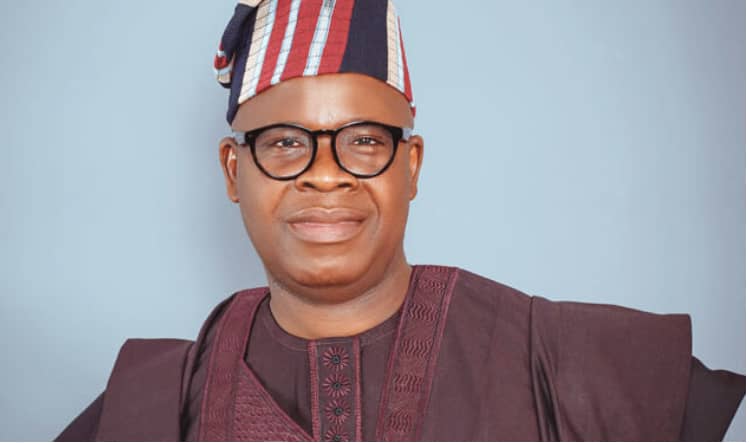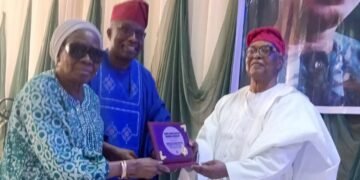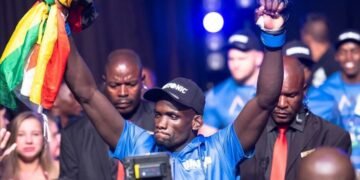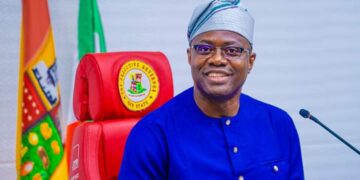Ibadan is a city where the past is never far from the present. Its rugged hills, expansive neighbourhoods, and enduring spirit all tell stories of Yoruba pride, strength, and survival.
Once the centre of commerce, politics, and scholarship, Ibadan now sits at a crossroads, torn between preserving its history and catching up with a rapidly changing Nigeria.
In the midst of this complex transformation stands Chief Jubril Dotun Sanusi, a man who is quietly reimagining what Ibadan can become.
His vision is not driven by political ambition or public fanfare but by a deep, deliberate commitment to lasting change.
He represents a different kind of leadership, one that works patiently, without theatrics, transforming communities one thoughtful act at a time.
Perhaps the most visible symbol of Sanusi’s vision is Ilaji Hotels and Sports Resort, a sprawling development tucked away in Ona-Ara, far from the bustle of Ibadan’s commercial core.
To the casual visitor, Ilaji appears to be a luxury retreat, complete with pristine landscapes, world-class sports facilities, and comfortable accommodation.
Yet, behind the elegance lies something far more profound: an audacious experiment in community-driven development.
From its conception, Ilaji was never meant to be an exclusive destination for the privileged. Sanusi envisioned it as a living ecosystem, an enterprise that draws strength from the community and gives back to it in equal measure.
Local farmers supply fresh produce to its kitchens, artisans sell their crafts to visitors, and transport operators and caterers have found new livelihoods around it.
Young people, once compelled to migrate to Lagos in search of opportunity, now see a future within reach.
Ilaji has become not just a resort but a heartbeat of economic activity, a model of how one project can transform a neglected space into a thriving hub of life.
In the language of urban planning, this is “place-making” the art of breathing meaning into spaces so they serve as centres of connection, identity, and commerce.
In Ibadan, however, it has simply become known as “JDS’s vision.” It reflects a distinctly local philosophy of development that marries commercial ambition with social good, progress with purpose.
But Sanusi’s truest investment has always been in people. Across Ibadan, countless young men and women owe their progress to his quiet interventions, some through scholarships that allowed them to continue their education, others through mentorship and guidance that helped them build businesses and careers.
In a country where youth unemployment remains one of the most urgent challenges, this model of empowerment stands out.
Sanusi does not believe in short-term relief or political handouts; he believes in equipping people to stand on their own feet.
His philosophy is simple and profound: when you empower one person, you uplift an entire community.
This approach sets him apart from the transactional culture of Nigerian politics, where loyalty is often purchased through fleeting favours. Instead, Sanusi is building independence and dignity, one life at a time.
His philosophy recalls the industrial philanthropists of 19th-century Britain, visionaries such as Joseph Rowntree and George Cadbury who used their wealth to uplift working families through education, health, and fair wages.
Sanusi’s work carries a similar spirit, adapted to the Nigerian reality: a belief that progress must be ethical, inclusive, and rooted in people’s everyday lives.
For all his public achievements, much of Sanusi’s impact remains unseen. He has funded rural clinics, provided access to clean water through boreholes, and paid hospital bills for those in critical need, all without publicity.
Those who benefit often learn later that he was responsible, and even then, he urges them not to express gratitude but to help someone else in turn.
In a society where charity often serves as self-promotion, his quiet approach feels revolutionary.
Sanusi’s influence also extends deep into Ibadan’s traditional structures. As the Jagun of Ibadanland, he holds a chieftaincy title that connects him to centuries of history and cultural heritage.
For him, this role is not ceremonial; it is a duty of stewardship. He supports cultural festivals, funds the preservation of heritage sites, and invests in ensuring that traditional knowledge is passed down to younger generations.
His dual identity, modern entrepreneur and traditional leader, anchors his work in continuity.
This connection to Ibadan’s traditions gives his vision moral grounding. It assures the older generation that modernisation does not mean cultural erasure and gives the younger generation confidence that progress can coexist with identity.
As one community elder observed, “He walks with the young and eats with the old. That is how you build a city.”
Sanusi’s greatest strength may lie in his long-term thinking. In a country where leadership often revolves around short-term cycles, be it elections or business profits, he plans decades ahead.
At Ilaji, for example, staff are trained not only for their current duties but also for leadership roles in the future.
Systems of governance and accountability are embedded into his projects to ensure that they endure long after his direct involvement.
This patience and foresight may well be the most essential ingredient in Ibadan’s slow rebirth. True urban renewal cannot be achieved overnight.
It demands consistency, planning, and a sense of legacy that outlives individuals. Sanusi’s model challenges the assumption that development must sacrifice culture or that profit and progress are at odds. Instead, he has shown that they can exist in harmony, each strengthening the other.
Ibadan remains a city of contrasts, rich in history, yet struggling with modern challenges such as infrastructural decay, economic disparity, and political volatility. Still, beneath the surface, quiet change is taking root.
New enterprises are emerging, communities are gaining renewed access to vital services, and pride in the city’s cultural heritage is being rekindled.
At a community gathering, Sanusi once spoke of “planting trees whose shade we may never sit under.” The remark captures the heart of his philosophy.
It echoes Edmund Burke’s timeless idea that society is a partnership between the living, the dead, and the unborn, a sacred trust that binds generations together.
For Sanusi, leadership is exactly that: a responsibility to build something enduring, even if one never personally enjoys its full reward.
Ibadan’s transformation will not be swift, and the challenges are far from over. Yet, piece by piece, a new story is being written, of a city learning to rise again, guided by visionaries who work quietly but think boldly.
Among them, Chief Jubril Dotun Sanusi stands out. His belief in people, his respect for heritage, and his insistence on the long view have set him apart as one of Ibadan’s most influential modern figures.
What does it take to reimagine a city?
It takes faith, patience, and a leader who sees beyond his own lifetime. It takes someone like Jubril Dotun Sanusi, planting the seeds of a future Ibadan that will one day stand tall, proud, and united in its renewal.
Segun Kehinde writes from Egbeda.













